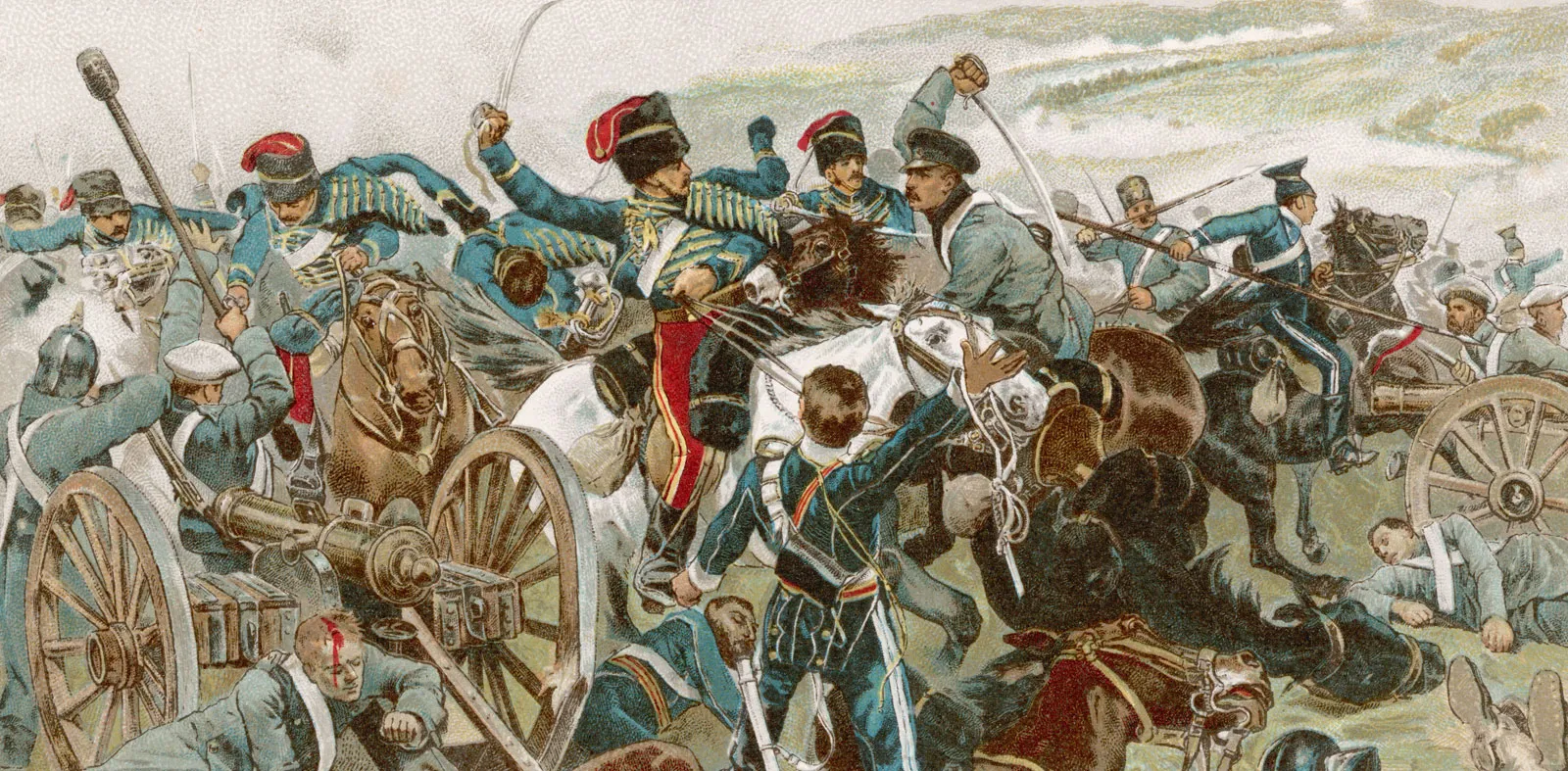
77. The Charge of the Light Brigade
It was October 16, 1853, when the Crimean War began after the Turkish Ottoman Empire declared war on Russia. Britain, France, and parts of Italy allied with the Turks against Russia.
This is regarded as the first war to be closely documented by newspaper reporters and photographers.
Amid poor sanitary conditions, disease killed many wounded French and British soldiers.
It was also after this that British nurse Florence Nightingale pioneered modern sanitation methods, saving many lives.
During this period, two articles appeared in The Times on November 13, 1854.
The article contained a sentence, “the British soldier will do his duty, even to certain death, and is not paralyzed by the feeling that he is the victim of some hideous blunder.”
Impressed with the above lines, the Poet Laureate of the United Kingdom, Alfred Tennyson, soon after wrote the celebrated narrative poem The Charge of the Light Brigade, which describes the battle of Balaclava, where the Light Cavalry Brigade suffered great casualties.
He initially signed only A.T., thinking that it might prove not to be decorous for a poet laureate.
Tennyson sent a thousand copies of a single-sheet version of the poem to be distributed among soldiers in the Crimea.
In those days, Tennyson was writing patriotic poems like Riflemen Form! in a very similar manner under various pseudonyms.
The poem was subsequently revised and expanded for inclusion in Maud and Other Poems (1855).
Forty years later, Rudyard Kipling wrote a poem titled The Last of the Light Brigade, focusing on the terrible hardships faced in old age by veterans of the War and to shame the British public into offering financial assistance.
Read the full poem here,
I
Half a league, half a league,
Half a league onward,
All in the valley of Death
Rode the six hundred.
“Forward, the Light Brigade!
Charge for the guns!” he said.
Into the valley of Death
Rode the six hundred.
II
“Forward, the Light Brigade!”
Was there a man dismayed?
Not though the soldier knew
Someone had blundered.
Theirs not to make reply,
Theirs not to reason why,
Theirs but to do and die.
Into the valley of Death
Rode the six hundred.
III
Cannon to right of them,
Cannon to left of them,
Cannon in front of them
Volleyed and thundered;
Stormed at with shot and shell,
Boldly they rode and well,
Into the jaws of Death,
Into the mouth of hell
Rode the six hundred.
IV
Flashed all their sabres bare,
Flashed as they turned in air
Sabring the gunners there,
Charging an army, while
All the world wondered.
Plunged in the battery-smoke
Right through the line they broke;
Cossack and Russian
Reeled from the sabre stroke
Shattered and sundered.
Then they rode back, but not
Not the six hundred.
V
Cannon to right of them,
Cannon to left of them,
Cannon behind them
Volleyed and thundered;
Stormed at with shot and shell,
While horse and hero fell.
They that had fought so well
Came through the jaws of Death,
Back from the mouth of hell,
All that was left of them,
Left of six hundred.
VI
When can their glory fade?
O the wild charge they made!
All the world wondered.
Honour the charge they made!
Honour the Light Brigade,
Noble six hundred!